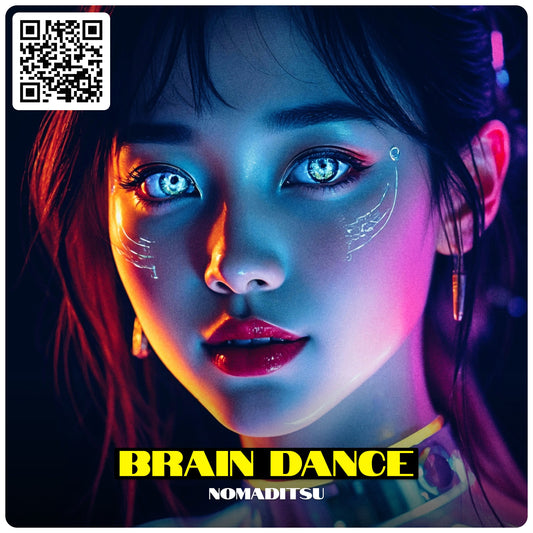

Video Description
Overview
Dive into the future of AI-powered content creation with this exclusive first look at Google Labs' revolutionary Notebook LM Audio Overview feature. Watch as I explore this groundbreaking technology using Adam Smith's "The Wealth of Nations" as a test case, and witness the creation of an instant, AI-generated podcast that's shockingly lifelike and engaging.
What You'll Learn
- Step-by-step guide on using the NotebookLM Audio Overview feature
- Real-time reactions to this mind-blowing technology
- Why this could be a game-changer for content creators and researchers
- Potential implications for AI advancement and the future of information synthesis
My Thoughts
I share my thoughts on how this technology compares to previous AI content generation attempts and why I believe we've crossed a new threshold in AI capabilities. Whether you're a content creator, AI enthusiast, or just curious about the latest tech innovations, this video offers a fascinating glimpse into the future of AI-assisted learning and content production.
Chapters
- 00:00 Preview
- 00:18 Intro
- 00:46 Google Blog
- 01:07 Project Gutenberg
- 01:59 NotebookLM
- 02:55 Plan B
- 03:28 Reupload
- 03:54 How to Generate Audio Overview
- 04:24 NotebookLM Generative Documents
- 05:33 NotebookLM Chat
- 06:08 [AI POD] - Wealth of Nations Podcast!
- 07:24 [AI POD] - Division of Labor and Specialization
- 09:35 [AI POD] - Natural Price vs Market Price
- 12:24 [AI POD] - Factors Affecting Wages
- 14:13 [AI POD] - Land Ownership and Landlord-Tenant Dynamics
- 16:26 [AI POD] - Free Trade and Mercantilism
- 18:29 [AI POD] - Smith's Views on Colonies
- 19:55 [AI POD] - Key Takeaways from The Wealth of Nations
- 21:52 Final Thoughts
Connect with Me
Tags
#notbooklm #podcast #podcasting #aiinnovation #aicommunity #aivideo #productreview #aireview #ai #openai #chatgpt #youtuber #digitalnomade #reaction #reactionvideo #AITechnology #ContentCreation #GoogleLabs #FutureOfAI #TechInnovation #tutorial #aitutorial
Transcript
Introduction
Every single step from start to finish. You wouldn't get very far, would you? I'd probably get distracted and, you know, start trying to make a tiny hat or something, right? Not very efficient. But what—their comparisons are freaking hilarious.
Discovering NotebookLM Audio Overview
Hey guys, so I saw this tweet from Google Labs about the new Notebook LM audio overview feature and I got to try it out. I was just blown away. It kind of feels the same way when Sora came out or when I heard my first Tuno track—it just felt like a magical experience. Something different has changed and there's a new AI presence in the world. So here's the article that they announced this feature with, and it lets you listen to a conversation about your sources. We built Notebook LM to make sense of complex information. When you upload sources, it instantly becomes an expert, grounding its responses in your material with citations and relevant quotes.
Experimenting with Public Domain Books
My idea was to look at Project Gutenberg, which has public domain books—over 70,000 of them—and see if I could explore a book that I've never tried before because it just seemed too crazy and intimidating. So, War and Peace. Let's try this. We have War and Peace by Leo Tolstoy. Let's just check to see what it looks like, if it's in English. Look at this thing—look how many chapters there are! My idea is to take all of War and Peace and see if we could listen to an instant conversation based on it. So I downloaded the plain text file, started a new account for this, uploaded War and Peace, and waited for it to process. But we found a limitation: the word count should be less than 500,000 words. My initial experiment couldn't happen because the source was too huge. Let's find a smaller source.
Switching to The Wealth of Nations
I looked in Perplexity to find something on Project Gutenberg that was long and non-fiction. I found The Wealth of Nations—about 131,000 words. For comparison, Harry Potter and the Philosopher's Stone is about 76,000 words, so this is about 70% longer. I thought that would be a good place to start. Back in Notebook LM, I called this 'Wealth of Nations,' uploaded the text, and it processed successfully.
Generating the Audio Overview
To use the new feature, go to Notebook Guide, then the audio overview section, and hit generate. This can take a while depending on the amount of content. While waiting, I explored other features: you can generate new content like timelines, FAQs, table of contents, briefing docs, and study guides. These summaries are amazing and cover everything from ancient times to the 18th century, with key characters highlighted.
NotebookLM Chat and Podcast Creation
Another cool feature is the chat, where you can ask questions like 'ELI5 what this book is about.' The AI gives a simple explanation: Adam Smith's 'An Inquiry into the Nature and Causes of The Wealth of Nations' is an important book about economics—wealth isn't just money, it's about how countries grow. Then, the moment we've been waiting for: The Wealth of Nations in podcast format! The AI-generated podcast is surprisingly natural and conversational, with intonations, emotions, and even little reactions that make it feel lifelike.
Podcast Highlights: Division of Labor
The podcast dives into Smith's ideas, like the division of labor, illustrated with the example of a pin factory. Trying to make a pin yourself is inefficient, but breaking the process into specialized tasks boosts productivity. This concept applies to everything—restaurants, hospitals, and more. Specialization is woven into the fabric of how we function.
Podcast Highlights: Invisible Hand & Market Dynamics
Smith's 'invisible hand' concept is explained: pursuing your own interests in a free market can benefit society as a whole, even unintentionally. The podcast uses relatable examples, like making pottery and selling mugs online, to show how individual passions contribute to the economy. The discussion covers natural price vs. market price, monopolies, government intervention, and the importance of free markets.
Podcast Highlights: Wages, Land, and Social Status
The podcast explores factors affecting wages—job risk, education, trust, and social status. Smith's analysis of landlord-tenant dynamics and land ownership is related to modern issues like affordable housing. The conversation transitions smoothly between topics, connecting ideas and providing insights for content creators.
Final Thoughts
The video wraps up with reflections on how these economic principles still resonate today and how AI-generated content can inspire new ways of learning and creating. The host expresses excitement about the future of AI-assisted content and encourages viewers to connect on social media.



